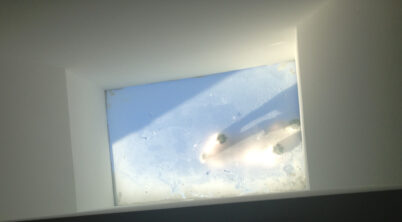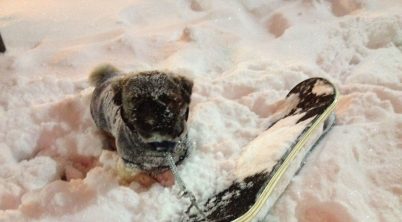The Pekingese, a toy breed that has been cherished since ancient times in China, is known for its lion-like mane and bold demeanor. Originating from the imperial courts, where it served as a regal companion to the Chinese nobility, this breed’s popularity surged in the Western world after one was famously gifted to Queen Victoria during the 19th century. Recognized by the American Kennel Club (AKC), the Pekingese carries itself with dignity and pride, often exuding a self-important air befitting its royal lineage.
Despite its regal background and striking appearance, the Pekingese is susceptible to various health issues, a fact potential owners must consider. As with many purebred dogs, the Pekingese has been bred to have certain distinctive physical features which, while contributing to its unique appearance, can also predispose the breed to certain medical conditions. These may range from respiratory challenges due to their flattened faces, to skin conditions, and even distinctive eye problems owing to their large, prominent eyes.
Owners of this toy breed should be cognizant of the inherent health challenges and be proactive in seeking veterinary care. Proper awareness and regular health monitoring can help mitigate some of the breed-specific issues that Pekingese dogs face, ensuring that these canine companions live full and comfortable lives despite their predispositions. While the breed is generally long-lived, with a typical lifespan of 12-14 years, attentive care is essential to manage their health proactively.
Table of Contents
Pekingese Health Issues
Pekingese dogs, cherished for their affectionate nature, are prone to several health conditions. Owners should monitor for signs of the following common issues:
Respiratory Issues: The Pekingese’s flat face (brachycephalic structure) can lead to breathing difficulties. Symptoms may include noisy breathing, snorting, and exercise intolerance.
Skin Problems: These dogs may experience skin conditions caused by parasites, allergies, or infections. Symptoms to watch for are:
- Excessive scratching
- Hair loss
- Scabs
- Red skin
Eye Disorders: Their prominent eyes are susceptible to issues like ulcers and dryness. Look for signs like rubbing, redness, or discharge.
Orthopedic Issues: The breed can suffer from hernias and luxating patellas. Signs include a reluctance to move, limping, or other unusual gait changes.
Digestive Problems: Bloat is a critical condition that requires immediate attention. Warning signs are a distended abdomen, drooling, and restlessness.
| Condition | Symptoms | Remarks |
|---|---|---|
| Hanging Tongue | Tongue protrusion | Often a benign condition |
| Autoimmune Issues | Pale gums, fatigue, jaundice | Autoimmune Hemolytic Anemia is one type |
| Heart Problems | Coughing, lethargy, difficulty breathing | Early detection improves outcome |
Early detection and veterinary care are crucial for managing these conditions. Regular check-ups and informed care can help to ensure Pekingese enjoy a quality life with their families.
Health and Well-Being
Maintaining the health and well-being of a Pekingese involves understanding the breed’s common health challenges, providing a balanced diet, and ensuring appropriate exercise. Regular veterinary care contributes to early detection and management of potential health issues.
Common Health Problems
Pekingese dogs, with their distinctive appearance and compact size, can be prone to several health problems.
- Respiratory Issues: Their flat faces make them susceptible to brachycephalic syndrome, causing breathing difficulties.
- Skin Conditions: Allergies, parasites, and infections can lead to symptoms like scratching, hair loss, and skin redness.
- Eye Disorders: Due to their prominent eyes, Pekingese can experience ulcers and other eye problems.
- Heart Conditions: Mitral valve disease is a known concern within the breed.
- Orthopedic Issues: Their build makes them susceptible to hernias and other musculoskeletal problems.
- Autoimmune Diseases: Conditions like autoimmune hemolytic anemia may occur.
Regular veterinary visits for check-ups, timely vaccinations, and parasite control are essential.
Diet and Nutrition
A balanced diet contributes significantly to the Pekingese’s overall health and well-being.
- Proper Weight Management: Obesity can exacerbate respiratory and joint issues, so maintaining an ideal weight is crucial.
- Quality Food: High-quality food appropriate for their size, age, and activity level supports good health.
- Special Diets: Some may need special diets due to allergies or health conditions.
Consultation with a veterinarian can guide the optimal diet plan for an individual Pekingese.
Exercise and Activity Levels
Pekingese require a tailored approach to exercise that considers their physical limitations.
- Regular, Gentle Exercise: Short walks and play sessions that do not over-exert the dog are recommended.
- Avoid Overheating: Due to their susceptibility to heat stress, Pekingese should not exercise strenuously, especially in warm weather.
- Activity Balance: Alongside physical activities, mental stimulation through interactive toys or mild training exercises can keep them engaged.
Too much physical exertion can lead to health problems, but adequate activity is necessary to prevent obesity and keep the Pekingese mentally and physically stimulated.
Genetic and Common Diseases
Pekingese dogs, with their distinctive lion-like appearance and rolling gait, are prone to various genetic and common diseases due to their unique physical conformation and hereditary factors.
Brachycephalic Syndrome
The Pekingese is characterized by a brachycephalic head shape, meaning they have a broad, short skull that can lead to breathing problems. Brachycephalic syndrome affects the respiratory system and can cause symptoms like labored breathing and overheating. It’s important for owners to monitor their Pekingese during exercise and in hot weather to prevent respiratory distress.
Eye Diseases
Due to their prominent eyes, Pekingese are at risk for several eye problems:
- Keratoconjunctivitis Sicca (KCS), also known as dry eye, is a common condition where there is insufficient tear production, leading to itchy and infected eyes.
- Progressive Retinal Atrophy (PRA) is a degenerative disease that can lead to blindness over time.
Owners should regularly clean their Pekingese’s eyes and seek veterinary care for any signs of irritation or vision loss.
Orthopedic Issues
Pekingese can experience several orthopedic issues, often related to their compact body structure:
- Hip Dysplasia is a malformation of the hip joint that can cause pain and arthritis.
- Patellar Luxation happens when the kneecap slips out of place, potentially leading to lameness or discomfort.
- Intervertebral Disk Disease (IVDD) can occur in Pekingese due to their long backs, leading to spinal cord pressures and pain.
Monitoring weight and providing supportive bedding can help manage these conditions.
Internal Health Concerns
Pekingese may suffer from various internal health issues, with heart disease being one of the most significant:
- Heart Disease, particularly mitral valve disease, affects the heart’s ability to pump blood and can be exacerbated by factors like obesity.
Regular veterinary checkups and a balanced diet are crucial for early detection and management of heart disease in Pekingese. Owners should also be on the lookout for symptoms such as coughing or difficulty breathing.
Routine Care and Grooming
The Pekingese breed requires diligent grooming to manage its long, flowing coat. Regular brushing is essential to minimize shedding and prevent mats and tangles. A thorough brushing at least twice a week using a suitable brush, such as a bristle or pin brush, will help keep the coat in good condition.
Skin problems and allergies, including skin fold dermatitis, can occur in Pekingese, making it important to regularly check their skin for signs of irritation, especially within the folds. Moreover, due to their thick fur, they may be more susceptible to parasites. As part of routine care, owners should consistently apply vet-approved flea and tick prevention treatments.
Dental disease presents a significant health risk in the breed, therefore, dental issues need prompt attention. Regular dental care includes brushing their teeth several times a week with a canine-specific toothpaste to avert plaque buildup.
Pekingese dogs are known for being affectionate and loyal companions. They often exhibit a playful and independent streak, but consistent socialization is crucial to foster a well-rounded temperament. Beyond grooming and healthcare, making time for play and interaction is key to their mental well-being.
In summary, routine care for a Pekingese includes regular grooming to prevent matting and handle shedding, proactive management of skin and dental health, and engaging interaction to support their social needs. By maintaining a dedicated grooming and care routine, owners ensure their Pekingese not only looks their best but also supports their overall well-being.
Breeding and Puppy Care
When breeding Pekingese, one must select healthy parents with a clear medical history to reduce the likelihood of hereditary health issues. A responsible breeder will focus on the health and temperament of their Pekingese to foster a strong lineage. The typical lifespan of a Pekingese ranges from 12 to 15 years, emphasizing the importance of early health interventions.
Feeding: Puppy nutrition significantly influences lifelong health. The diet should be:
- Formulated for puppies or all life stages
- Approved by the Association of American Feed Control Officials (AAFCO)
- Appropriate for small breeds to prevent obesity
- Accompanied by constant access to fresh water
Shelter and Rest: Proper care extends to their environment:
- Provide a safe, comfortable crate for rest and when unsupervised
- Ensure the space is neither too hot nor too cold, as the breed is sensitive to extreme temperatures
Health Management: Primary health concerns include:
- Screening: Genetic screenings for common Pekingese health problems
- Medication and Surgery: Depending on the condition, medication or surgery may be recommended; this includes potential issues like hernias or heart conditions
- Vaccinations: Follow a veterinarian-approved schedule
- Spaying/Neutering: Discussing appropriate timing with a vet is recommended to prevent unwanted litters and mitigate certain health risks
Monitoring the puppies with frequent veterinary visits is essential. Early detection of health issues like autoimmune hemolytic anemia or obesity through regular check-ups can inform the need for diet adjustments or medication. Knowledgeable care from the start paves the way for a healthy, fulfilled life.








